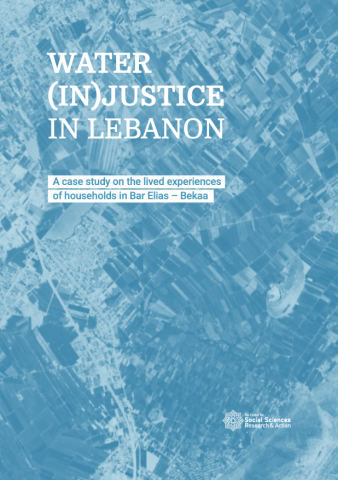Water (in)Justice in Lebanon. A case study on the lived experiences of households in Bar Elias – Bekaa

This study examines the water-related challenges faced by residents of Bar Elias, Lebanon, focusing on the impacts of water scarcity, quality, and access on vulnerable populations. The study highlights how inadequate water resources in the region exacerbate socio-economic disparities, particularly among women, children, refugees, the elderly, and persons with disabilities. In Bar Elias, women are primarily responsible for water collection, while children are vulnerable to waterborne diseases, which further hinder their development. The elderly face heightened health risks due to water pollution, and individuals with disabilities encounter significant barriers to accessing clean water due to insufficient infrastructure.
The study also explores the broader socio-political context of Lebanon’s water crisis, emphasizing the shortcomings of current water management policies and the need for comprehensive reforms. The study critiques the lack of political will to prioritize equitable water distribution and to implement reforms that address the root causes of the crisis. It suggests that, without substantial changes in governance and resource allocation, the gap in access to clean water will continue to widen, disproportionately affecting the most vulnerable populations.

